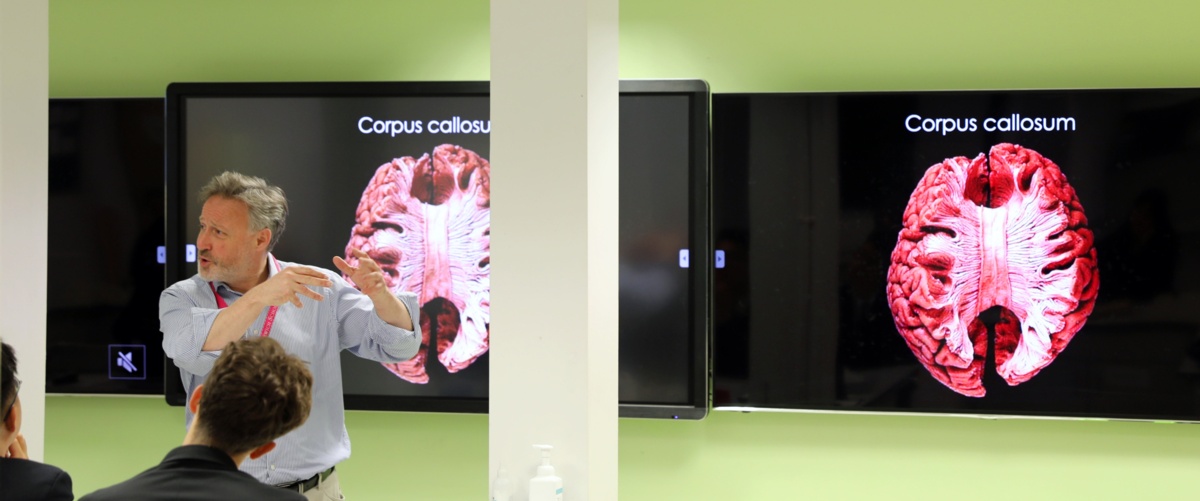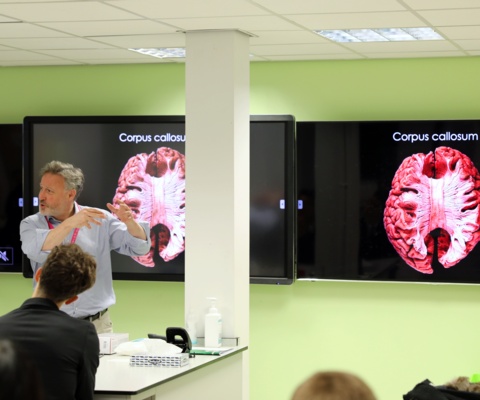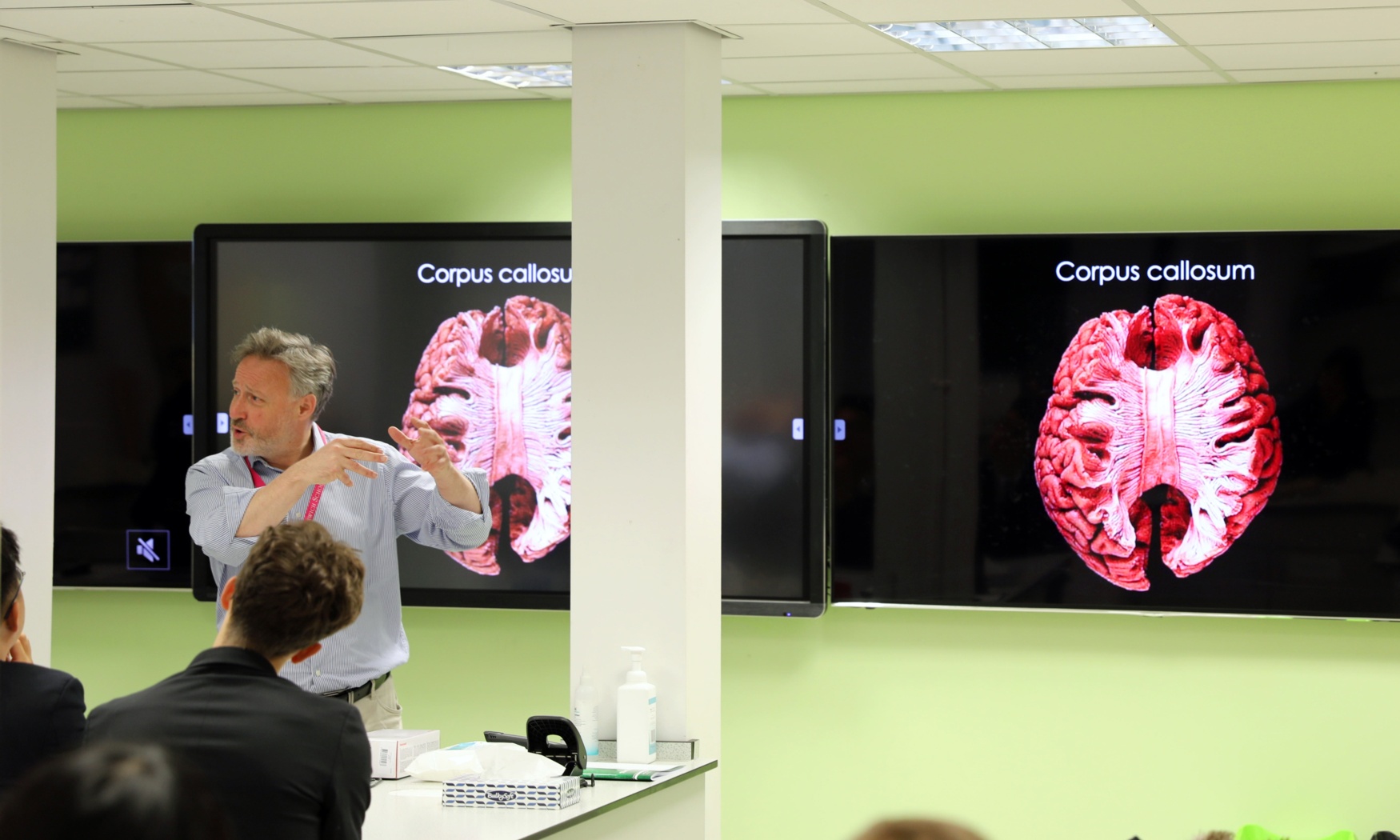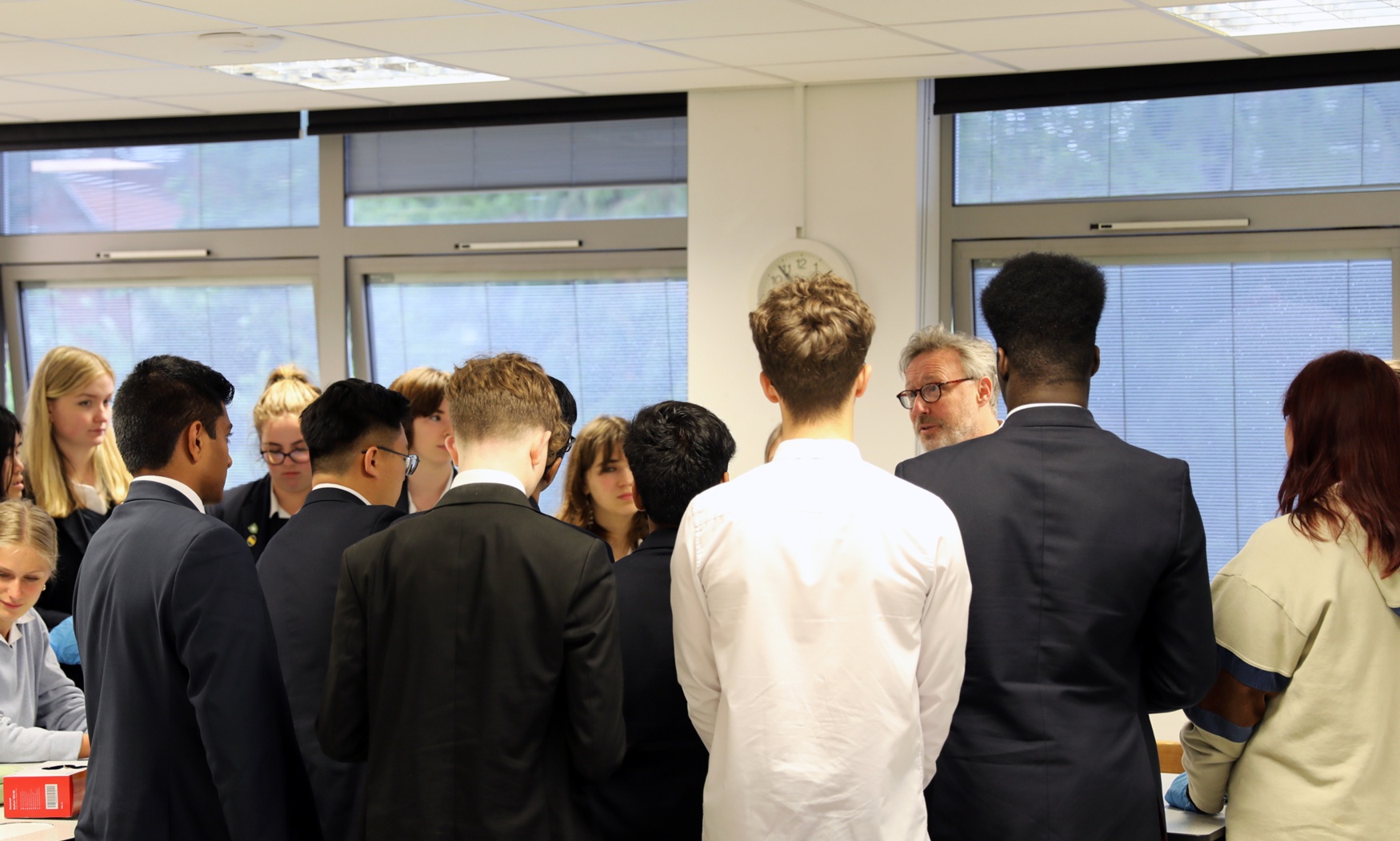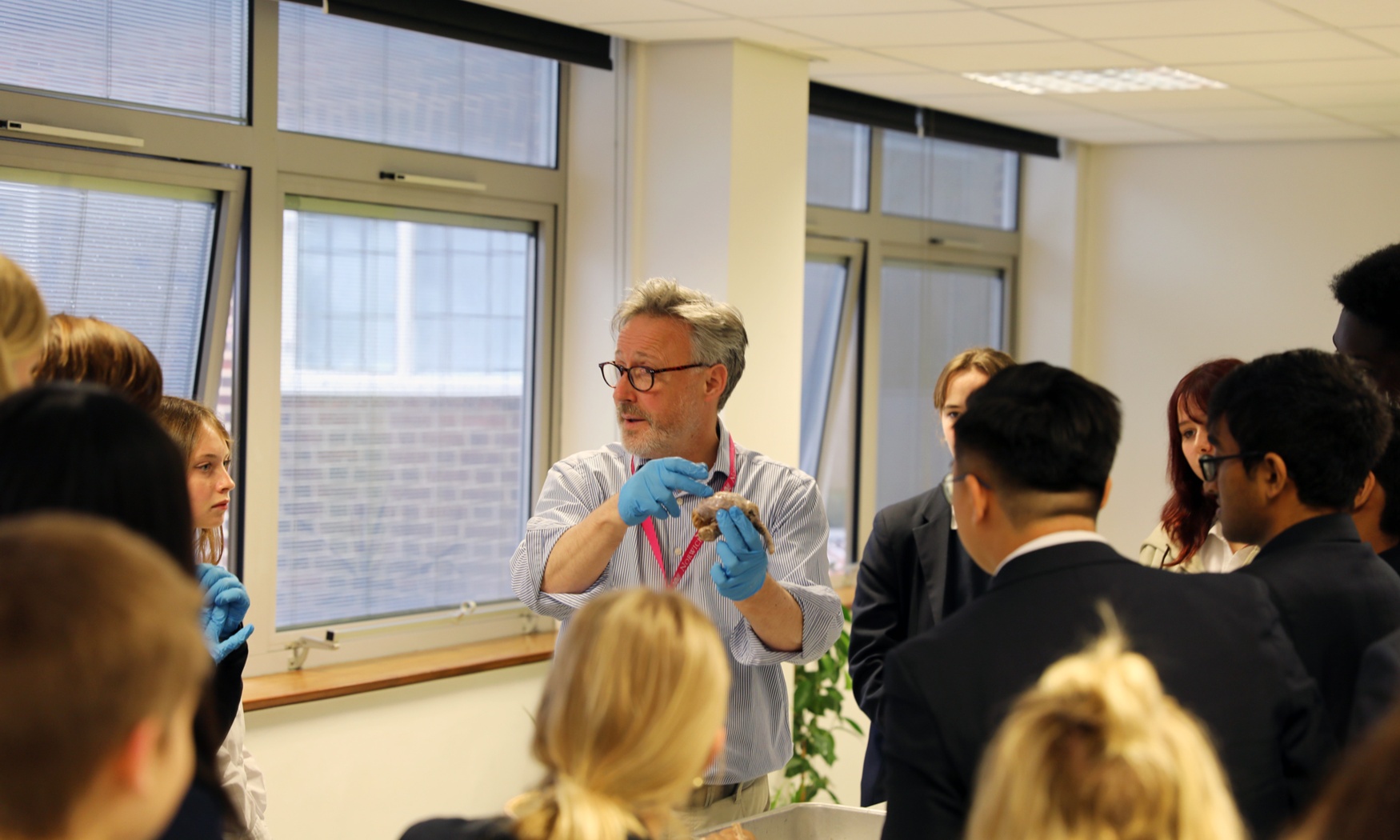On Tuesday 9 and Friday 12 May, Dr Guy Sutton, academic and clinical neurobiologist, and the director of Medical Biology Interactive, led half-day workshops for each L6 Biology class entitled ‘Brain Day’.
Lower 6 pupil India Bayes gives us an account of the experience:
The workshops consisted of two book-ended lectures with a sheep brain dissection between. During the lectures and brain dissection, Dr Sutton discussed the brain’s structure and specific functions as well as introducing U6 A-level content of action potential along the axon. Dr Sutton also spoke how ‘science-fiction’ is now starting to become ‘science fact’. He discussed a variety of topical science discoveries and debates which are currently being further developed:
- Brain organoids (mini functioning brains) developed in vitro allowing the research to improve understanding of brain disorders. An organoid has been grafted into a rat’s brain where it has been able to integrate and therefore function. This means disorders like Parkinson’s could be restored with integrated organoids. Dr Sutton spoke about how this has come with many arguments determining if the organoid has consciousness, and therefore if the organoid deserves the same rights as human and animal research subjects.
- Brain computer interfacing e.g. chips implanted to cure blindness by ‘Bluetooth connecting’ robotic eyes to the back of the brain.
- Neural chips to monitor and calm seizures for Epilepsy patients.
- Neural chips to transfer one’s thoughts into speech on a computer e.g. attaching brain-bracelets (rather than ankle bracelets) to criminals to allow their release from prison with police monitoring their thoughts. This would help decrease prison populations; however, there are major ethical issues for invading the privacy of one’s thoughts.
- Dementia and the link between lifelong exercise and lowering dementia rates (by producing high levels of synaptotagmin).
- The cause of multiple sclerosis in relation to a lack of myelin on the axon.
- Whether a post-mortem brain can still have a consciousness up to 10 minutes after a person being pronounced dead (Delta wave activity detected in the brain). Debates on the ethical concerns of remaining conscious.
- Gamma waves detected in the brain as a patient dies. Gamma waves are related to dreams so Dr Sutton spoke how life may truly ‘flash before your eyes’.
Dr Sutton also ran a talk for aspiring medical students on Tuesday afternoon. Dr Sutton provided useful insight and advice to students with his vast experience lecturing both undergraduate and postgraduate students at Nottingham Medical School. Dr Sutton spoke about his academic journey including studying at Manchester, Manchester Metropolitan and Cambridge Universities; a typical working week for him; and a list of what key qualities he sees in the best medical students. This was a very inspiring talk for all students.
Many thanks to Dr Sutton for the visit and to India for providing this summary.

